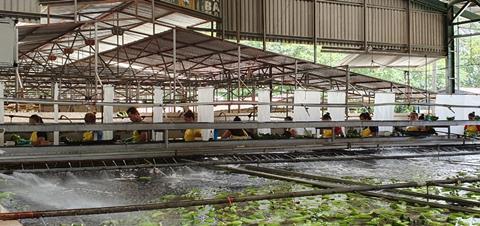Corporation said exports will fall this year due to climate effects rather than tariffs
Corbana, the National Banana Corporation of Costa Rica, has sought to reassure the country’s producers that exports will not be substantially impacted by Trump’s new tariff, as reported last week by researchers from the National University (Una).

On 8 May, the university’s International Centre for Economic Policy for Sustainable Development (Cinpe) presented a report stating that banana exports to the US could fall by 18 per cent due to the reciprocal tariff.
Corbana said it disagrees with this projection and considers it unlikely that banana exports will decline by such a large percentage due to this sole cause. It points out that the study assumes that Costa Rican bananas are easily substitutable by other exporting countries, but it should be noted that the largest suppliers of bananas to the US are also subject to the 10 per cent reciprocal tariff, as is the case with Ecuador.
Further, Corbana said that international organisations such as the Food and Agriculture Organisation of the United Nations (FAO) and the US Department of Agriculture (USDA) have determined that the price elasticity of demand for bananas is inelastic, meaning that price changes do not substantially alter the quantities consumed.
“This means that when the price increases, the quantity of bananas purchased or consumed does not decrease substantially,” Corbana said.
According to USDA figures, per capita banana consumption in the US reached 12.1kg in 2023, making it the most consumed fruit. Around 82 per cent of consumers had purchased bananas that year.
According to Corbana, the cost of the tariff applied since April 2025 is being borne by the importer.
“Bananas are the cheapest fruit in fresh produce departments, and this status will not change with the reciprocal tariff. Their price has not been adjusted for inflation in more than 20 years, as other fruits have been,” explained Corbana’s general manager Marcial Chaverri.



